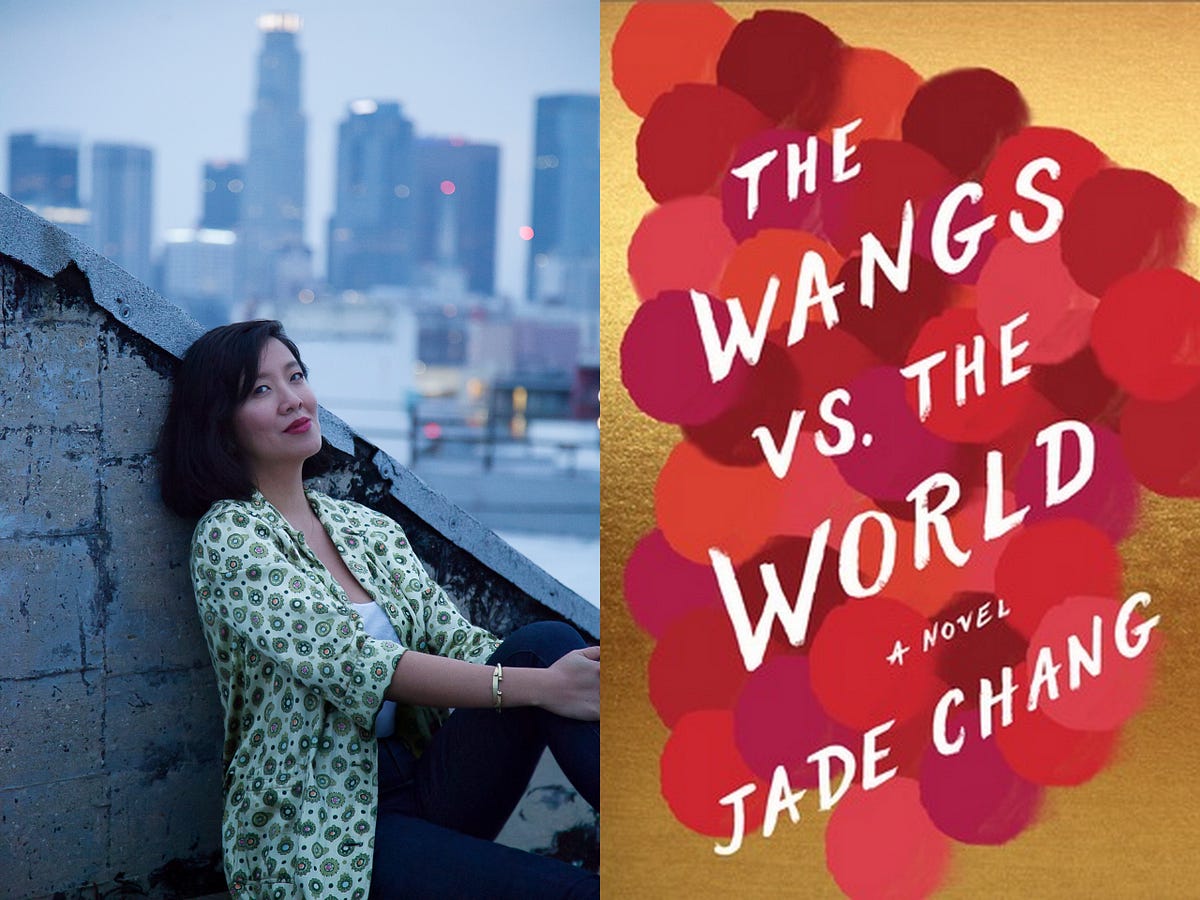A Review of Jade Chang’s The Wangs vs. The World (Houghton Mifflin, 2016).
By Stephen Hong Sohn
For some reason or another, I stalled a number of times while starting this novel. I would read it, get stuck about forty or fifty pages in, then I would put it down. By the time I would pick up the novel again, I would have forgotten enough of the basic plot that I would have to start over. Part of the issue is that the novel is, by design, disjointed. The narrative perspective consistently changes among the different Wang family members. At one point, the narrative perspective even shifts to the family car. Indeed, the main formal element to note is that we have a road novel, and the Wang patriarch, Charles, is catalyzed to go on this road trip (along with his second wife Barbra) in order to pick up his younger two children (Grace, who is at a boarding school) and Andrew (who is at a university in Arizona) to head over to the eldest’s home (Saina, who lives in New York). Charles has lost the family fortune and is trying to galvanize the family by consolidating them in one place and time.
Here is a summary from Goodreads: “A hilarious debut novel about a wealthy but fractured Chinese immigrant family that had it all, only to lose every last cent - and about the road trip they take across America that binds them back together. Charles Wang is mad at America. A brash, lovable immigrant businessman who built a cosmetics empire and made a fortune, he’s just been ruined by the financial crisis. Now all Charles wants is to get his kids safely stowed away so that he can go to China and attempt to reclaim his family’s ancestral lands—and his pride. Charles pulls Andrew, his aspiring comedian son, and Grace, his style-obsessed daughter, out of schools he can no longer afford. Together with their stepmother, Barbra, they embark on a cross-country road trip from their foreclosed Bel-Air home to the upstate New York hideout of the eldest daughter, disgraced art world it-girl Saina. But with his son waylaid by a temptress in New Orleans, his wife ready to defect for a set of 1,000-thread-count sheets, and an epic smash-up in North Carolina, Charles may have to choose between the old world and the new, between keeping his family intact and finally fulfilling his dream of starting anew in China. Outrageously funny and full of charm, The Wangs vs. the World is an entirely fresh look at what it means to belong in America—and how going from glorious riches to (still name-brand) rags brings one family together in a way money never could.”
Chang’s third person narrator is a semi-distant one, in the sense that this figure is poking some fun at these characters along the way. The comic undertones of the novel make this particular work stand out amongst a number of other Asian American family novels. Chang’s work functions more in line with Gish Jen than Amy Tan, but the episodic and shifting narrative perspective occasionally creates some uneven-ness to the reading experience (at least from my position).
Saina’s backstory I found probably the most interesting, as she was an artist of some success and celebrity status, but then finds herself in a bit of a rut when the novel starts out. She’s also in a complicated love triangle. Andrew is another very interesting character: he’s interested in stand-up comedy, so there’s a meta-element at least in terms of the novel’s tonality. The relative privilege that these characters possess prior to Charles’s bankruptcy (once that coincides with the Great Recession) is also an aspect that can be polarizing: on the one hand, the lost family fortune certainly jumpstarts the plot, but on the other, you sometimes can’t help but sneer at some of the thoughts/ emotions/ and feelings provided for us through the focalizing perspective. Fortunately, Wang’s narrator is often times right there with us, making it clear that we’re sometimes meant to laugh alongside this storytelling entity.
Buy the Book Here!
Review Author: Stephen Hong Sohn
Review Editor: Gnei Soraya Zarook
If you have any questions or want us to consider your book for review, please don’t hesitate to contact us via email!
Prof. Stephen Hong Sohn at ssohnucr@gmail.com
Gnei Soraya Zarook, PhD Student in English, at gzaro001@ucr.edu